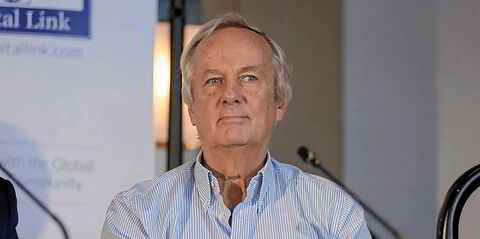Ships registered under the German flag slipped another 5% last year to 9.2 million gt despite a general trend to relocate tonnage back to Europe, according to figures from Clarksons.
However, Portugal’s Madeira ship registry shot up in size by another 20% to 14.6 million gt last year in another strong year of growth since it was set up four years ago in Hamburg through agency Euromar.
Euromar managing director Albrecht Gundermann suggests two thirds to three quarters of that incoming tonnage has come from German owners relocating to the European Union from open registers such as Liberia and the Marshall Islands. Owners need to locate 60% of tonnage within the EU to be eligible for tonnage tax.
“There’s been a growing awareness among German owners they can’t continue as they did in the past, so they looked into European flags and shifted back part of [their] fleet to Europe while we have continuously been improving the Portuguese flag,” he says.
Last year, the German government provided tax breaks and training subsidies for using German seafarers on German-flag ships but, as that also had to be extended to German seafarers on other EU-flag ships, it has not arrested the decline in the German-flag fleet.
Gendermann believes the trend will swing back towards national flags and away from open registers' flags, amid the controversy surrounding offshore banking and tax avoidance, and that the most competitive national flags will be the beneficiaries.
“We have a mega trend that goes way beyond German borders and it is from offshore to onshore and it manifests itself in stories like [the] Panama Papers,” he says. “When you want public funds in New York, you no longer want to publish an annual report that lists 25 Panamanian and Liberian registrations.
“Right now, around 75% of ships are registered under offshore registries and 25% under national registries, but I believe those numbers will reverse in my generation.”
Gundermann thinks the Madeira register has made the right moves to make sure that the German tonnage goes its way.
The mortgage legislation has been updated to make it easier for international banks to recognise Portugal as a mortgage jurisdiction. There is also a national drive under the country’s Antonio Costa-led socialist government to return to its glory days as a maritime giant under the Ministry of the Sea.
Gundermann says Portugal is also offering electronic certification.
German owners also still rank among the world’s largest boxship owners and they can gain financially by being back in Europe.
EU-registered ships can get discounts on port fees, which can add up to savings of more than $3.5m per year for the biggest operators.
Portugal’s historical links with Brazil also mean ships under its flag do not have to pay the lighthouse dues of $3,000 each time, which can add up to around $100,000 per year.



